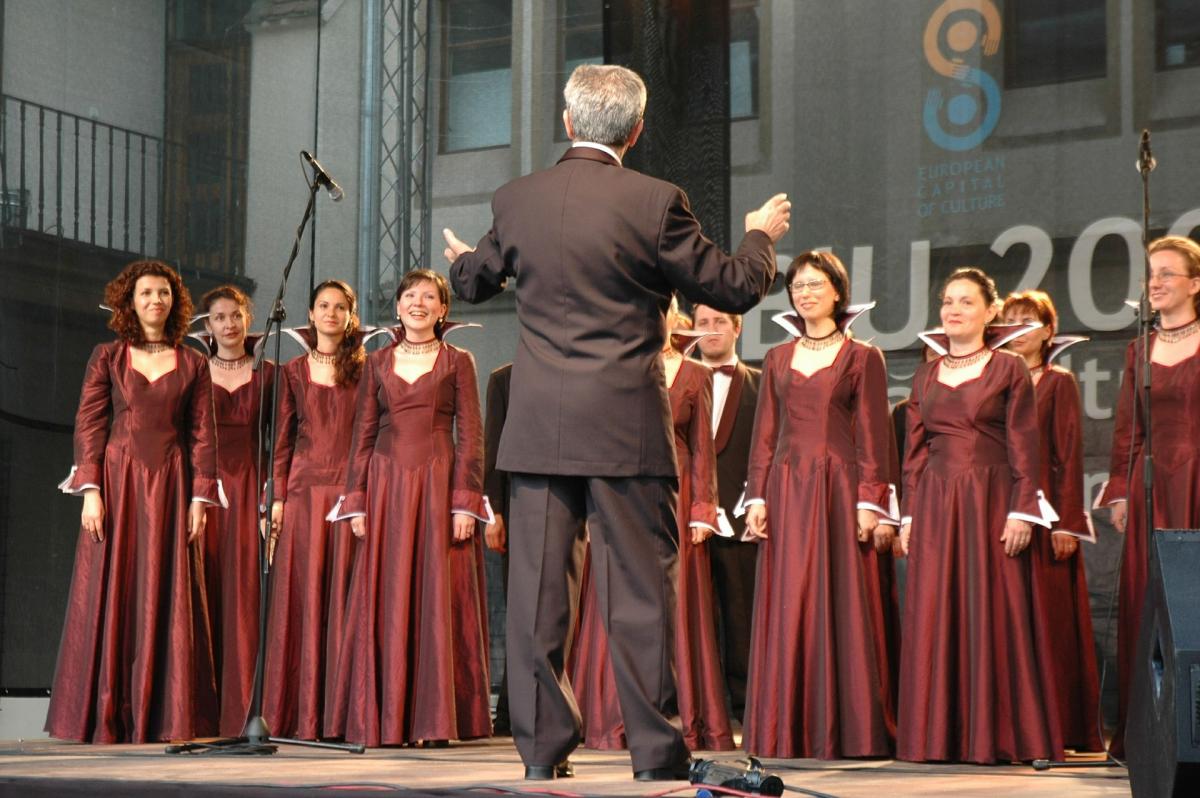Tips and Benefits of Singing in a Choir

Choirs are an excellent way to improve your singing. Whether singing in a classical choir, church choir, showband choir, or acappella/barbershop quartet, singing in a group will help your technique, sight reading, performance skills and musical knowledge. If you’ve thought about joining a choir recently either as a tenor, bass, soprano or alto, here are some tips and benefits that will help you decide what type of choir is right for you!
1. Technique
In any choir, you will strengthen your vocal technique tremendously. Singers are required to work on their intonation, blending their tone, and matching pitch when singing together. Singing in a choir will help you build the stamina to perform and sing for a longer length of time, in a healthy way. It’s also a great way to explore your range, and to really find out what voice part is right for you. For example if you’ve always sung soprano roles and wanted to try out what singing the alto part is like, joining a choir is a great way to experiment with this. Singing with others on the same voice part helps singers build confidence and musical independence, especially if you are new to singing. Joining a choir as a child is eye opening, but can be very rewarding for adults as well. Many singers that don’t pursue music full time, but are doctors, lawyers, teachers often sing in choirs during their free time to fulfill their creative needs. Singing with singers of all music levels will help train your ear.
2. Sight Reading/Learning how to read music
In most choirs you will be learning to read a lot of sheet music. Some choirs still teach music by ear (by rote), which has the benefit of memorization and training your ear naturally. However, if you are really looking to improve your speed and recognition of reading sheet music, choir is a great way to do so. Choirs dive into harmonies, chords, and rhythms and how they work among two to eight different voice parts. Learning how to sight-read each time your choir meets, will help give you the courage to eventually read and perform music on your own.
3. Musical Vocabulary
Choirs sing a vast amount of music, sometimes performing over fifty songs in a season. No matter, what type of choir you want to sing in, you will be exposed to an enormous roster of composers, and repertoire. Strengthening your musical history by singing traditional and contemporary music will benefit you greatly. I was first introduced to some of my favorite composers and arrangers by singing in a choir. You will also learn important terms and phrases from your conductor and accompanist such as “singing in unison,” “ legato,” “blending as one,” and “balance.” You will also be exposed to new musical terms, such as dynamics, music tempos, and styles. If you pay close attention to your conductor and accompanist, you may even pick up skills to conduct or accompany a choir of your own someday. It’s also a great way to pick up some phrases in another language. Classical choirs often sing in Latin, Italian, and French, while contemporary church choirs have begun singing in Spanish, and African languages too.
Singing in a choir requires every member to do their part. It takes patience, focus and determination. Every singer is part of a team, and everyone must have an equal part in the choir. If you are seriously thinking about joining a choir or are already singing in a choir, you can still work on choir music in private lessons. Often times it’s hard to get that individual vocal attention in choirs. If you need to nail down a harmony or rhythm part or need someone to practice memorization with, working with a vocal teacher on Lessonface will give you a great advantage. Schedule your lesson today on Lessonface.com.




